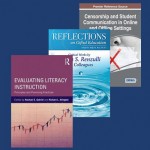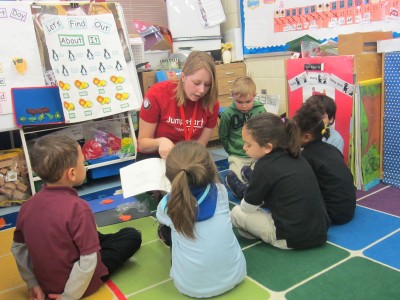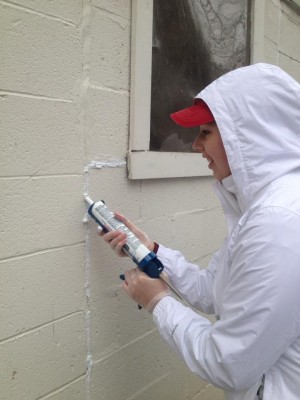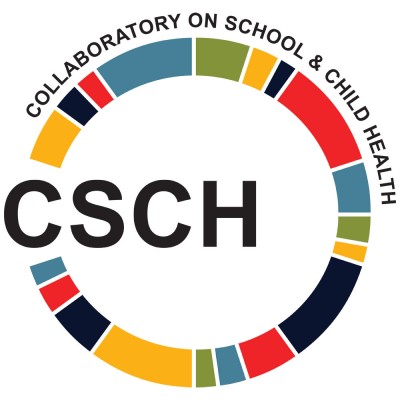 Below are news and notes from our alumni, faculty, staff, and students. We are proud of all the amazing accomplishments by our Neag family. If you have an accolade to share, we want to hear from you! Please send any news items (and story ideas) to neag-communications@uconn.edu.
Below are news and notes from our alumni, faculty, staff, and students. We are proud of all the amazing accomplishments by our Neag family. If you have an accolade to share, we want to hear from you! Please send any news items (and story ideas) to neag-communications@uconn.edu.
Students
Members of the student group Leadership in Diversity (L.I.D.) partnered with Neag School faculty in presenting at the 2015 National Association for Multicultural Education Conference in October in New Orleans.
Joshua Abreu, a Ph.D. student in educational leadership, was awarded UConn’s El Instituto 2015-2016 predoctoral award for his initiative to identity and develop mentoring relationships with scholars in higher education.
Jennifer Dolan, a Ph.D. student in curriculum and instruction, had her research review “Splicing the Divide: A Review of Research on the Evolving Digital Divide Among K-12 Students” published in the Journal of Research in Technology in Education (JRTE).
Laura Kern and Kate Dooley, CBER graduate students, each presented two sessions on classroom management to more than 200 educators at a professional development conference organized by the Methuen Public Schools in Massachusetts in November.
Yujin Kim, doctoral student in educational leadership, defended her dissertation entitled “Development of the Employee Expertise Development Scale (EEDS)” in November.
Taylor Koriakin, along with faculty member Michael Coyne, authored a blog post titled “Early Reading Development: What by When?” via the Kennedy Krieger Institute site in November.
Kristopher Perry, current Ph.D. student and director of Veterans Affairs and Military Programs at UConn, was one of the grand marshals for the annual Veterans Parade, held in November in Hartford, Conn.
Orlando Valentin `15 (ED) has been awarded the Alma Exley Scholarship for aspiring public school teachers of color. Valentin is currently pursuing his master’s of science in curriculum and instruction through the Neag School’s IB/M Program.
Alumni
The Neag Alumni Society Board is piloting a mentorship program for connecting Neag School graduates to current fifth-year students in the IB/M program. Twenty students were matched to mentors through the use of the ASPIRE Survey. The Neag Alumni Society Board hosted a “Meet and Greet” in November at the Alumni House.
The Neag School hosted a film screening of the 2013 documentary “Stolen Education,” followed by a panel discussion that explored racism, segregation, and the Mexican-American contribution to the civil-rights movement. Guest panelists included Cathy Schlund-Vials, director of UConn’s Asian and Asian American Studies Institute and chair of the UConn Reads program; Richard Gonzales, director of the Educational Leadership Preparation Programs in the Neag School; Blanca Rincón, Department of Educational Leadership faculty member; Erica Fernández, Department of Educational Leadership faculty member and mentee of “Stolen Education” executive producer and co-writer Enrique Alemán, professor at the University of Texas at San Antonio; Martha Perez-Pedemonti ’08 (CLAS), ’12 JD, staff attorney at Sanctuary for Families in New York City and member of the New York City Bar Association’s Committee on Women in the Legal Profession; and Sarah Hodge ’15 (ED), current fifth-year student in the IB/M Program.
More than 20 UConn alumni returned to their alma mater in October to network with current sport management students for a “Career in Sports Night.” Each alum is following a promising career path at major sports corporations, including ESPN, NBC Sports, and Major League Baseball. More than 60 undergraduates attended.
Brittany (Perotti) Agne ’11 MA serves as director of children’s education programming at New York Cares.
Fernando Carrasquillo ’13 (ED) is the Relay for Life community manager for the American Cancer Society in Winter Park, Fla.
Felice Duffy ’82, ’01 MA, ’01 Ph.D., a 2014 Neag Alumni Society Outstanding Professional Award recipient, recently retired from her position as a federal prosecutor and opened her own law practice in New Haven, Conn., focusing on state and federal criminal defense, college student defense, and Title IX actions.
Jason Foster ’00, ’01 MA, ’08 6th Year, principal of Uncas Elementary in Norwich, Conn., has been named to Southeastern Connecticut’s 2016 “40 Under 40” list, which honors those who display excellence in their professions and service to Southeastern Connecticut. The awards will be presented in January.
Alex Friedman ’08 (ED) is working in mergers, acquisitions, and corporate development at WME/IMG in New York, N.Y.
Scott McCarthy ’08 (ED), ’09 MA, ’12 6th Year, ’14 Ph.D. was appointed program director of special education for Darien Public Schools in Darien, Conn. McCarthy has served as a school psychologist at Central Middle School in Greenwich, Conn. As part of his current responsibilities, McCarthy supervises 27 school psychologists in his role as psychology program associate.
Jennifer Myatt ’13 (ED) is a tennis service representative for the New England branch of the United States Tennis Association, a position she was offered upon completing an internship there while she was still enrolled at UConn.
Desi Nesmith ’01 (ED), ’02 MA, ’09 UCAPP and Garth Harries ’12 ELP took to the stage in November for the Neag School’s inaugural educational leadership alumni forum. Nesmith, chief school turnaround officer for the Connecticut State Department of Education, and Harries, superintendent of New Haven Public Schools, discussed the concept of leadership and their experiences at UConn. More than 125 friends, colleagues, and Neag School students, graduates, and faculty attended the event.
Matt Ouimette ’12 (ED), who started in the football equipment room for the NCAA, the NBA and the NFL, now produces videos for the sports organizations.
Colleen Palmer ’07 Ph.D. has been named the Superintendent of the Year for 2016 by the Connecticut Association of Public School Superintendents (CAPSS). Palmer is the superintendent for Weston Public Schools, including Weston High School, the top-ranked high school in Connecticut in 2015.
Carla Preli ’00 (ED), ’01 MA is a copywriter at Mintz + Hoke in Avon, Conn. She is responsible for developing written content for a variety of print and digital marketing vehicles, as well as script development for broadcast media. Preli previously worked at LSHD Advertising in Chicopee, Mass., for seven years.
For her Classes 4 Classes initiative, Kaitlin Roig-DeBellis ’05 (ED), ’06 MA has been selected from more than 8,000 candidates worldwide as a top 50 finalist for the Global Teacher Prize. Roig-DeBellis created Classes 4 Classes to encourage kindness and compassion in children after the Sandy Hook shooting in 2012.
Robin Rose ’78 MA, ’81 Ph.D. has retired from her position as the senior associate dean for the School of Professional Studies at Brown University in Rhode Island. Rose’s career at Brown spanned 34 years.
Twin brothers Ettore and Angelo Rossetti ’92 (ED) earned a Guinness World Record for tennis volleying on Oct. 27, 2015. The rally lasted for 30,579 consecutive shots, which kept the tennis ball suspended in the air for five hours and 28 minutes. The world record attempt also served as a fundraiser for Save the Children, a worldwide organization that aims to provide education and healthy starts for young children.
Sharon J. White ’76 MA is retiring from UConn after 35 years of service, included the past six as director of UConn’s Stamford campus. A first-generation college student, she began her career in higher education, working in admissions at Hampshire College in Amherst, Mass. She later moved onto Emerson College in Boston, where she worked in admissions and academic counseling.
Jean A. Wihbey ’02 Ph.D. is a final candidate for the president position of the Community College of Rhode Island in Warwick, R.I. Wihbey currently serves as provost of Palm Beach State College in Lake Worth, Fla.
Faculty
Faculty from across the Neag School presented “Contemporary Conversations” during UConn Huskies Forever Weekend in October. Sessions included expert panels on mental well-being, diversity, and creativity and innovation. Presenters for the first session, chaired by Sandra Chafouleas, included Elizabeth Cracco, director of Counseling and Mental Health Services at UConn; Anne Farrell, director of the Center for Applied Research in Human Development and associate professor in the Department of Human Development and Family Studies in UConn’s College of Liberal Arts and Sciences; and Alice Forrester, executive director of the Clifford Beers Clinic. The session on diversity was presented by Milagros Castillo-Montoya, and the session on creativity was presented by Ron Beghetto.
Neag School faculty joined with student organization Leadership in Diversity (L.I.D.) to host a “Day of Equity and Social Justice” in November. The event was highlighted by special guests Bree Picower, assistant professor at Montclair State University, and Antonio Nieves Martinez, assistant professor at the University of Massachusetts – Amherst. The guests discussed ways to improve equity and social justice not only on college campuses, but also in classroom and street environments worldwide.
CommPACT helped ninth-grade students at five Bridgeport schools kick off their school year in September. Kickoff day was themed “Preparing Our Youth for a Better Tomorrow” and provided programs to show students how to make good decisions, prevent violence, and take charge of their own lives.
CBER was well represented at the National PBIS Leadership Forum held in Rosemont, Ill., in October. Members who presented various breakout, roundtable, and poster sessions at the conference included George Sugai, Susannah Everett, Jennifer Freeman, Tamika La Salle, Allison Lombardi, and Brandi Simonsen.
The Department of Educational Leadership hosted an “Issues in Sport Discussion Series” in December. Karissa Niehoff ’10 Ph.D., the executive director for the Connecticut Association of Schools—Connecticut Interscholastic Athletic Conference (CASCIAC), and Anne McKernan ’11 ELP, director of leadership development for the Connecticut State Department of Education, shared via WebEx the importance of the relationship between sport and academic achievement in schools.
Sandy Bell was an invited speaker last month at the 2015 Agriculture & Food Systems Inservice, sponsored by the Cornell University Cooperative Extension. Her talk was titled “Adult Learning: Considerations for Educating and Training Pesticide Applicators.” She also conducted two focus groups of current students and recent graduates of adult learning programs, who are also UConn employees, in October. The groups provided insights about the learning and degree needs and interests of other UConn employees, and suggestions for marketing such programs to various employee groups.
Patricia Bellamy completed the Middle Management Institute (MMI) training series offered by the city of Hartford’s Department of Families, Children, Youth, and Recreation. Bellamy also represented Husky Sport as a participant in two workshops facilitated by the central office of Hartford Public Schools: “K-3 Early Literacy Interventions” and “Community Partnership Alignment with Classroom Curriculum.”
Eric Bernstein was one of five finalists in the “College Professor” category of the 2015 Bammy Awards, a cross-discipline honor that recognizes teachers of all subjects and education levels nationwide. In addition, in November, Bernstein, along with a colleague, presented his research findings “Gaps in Support for Students with Disabilities: Reconceptualizing Approaches to Disabilities through Culturally Relevant Pedagogy” at the Association for the Study of Higher Education Conference in Denver.
Eric Bernstein, Laura Burton, Casey Cobb, Morgaen Donaldson, Erica Fernández, Michele Femc-Bagwell, Richard Gonzales, Jennie Weiner, Sarah Woulfin, and current doctoral student Regina Hopkins presented research papers or book chapters, participated in panel discussions, and/or chaired sessions at the 2015 University Council of Educational Administration (UCEA) annual convention earlier this month in San Diego. Cobb, member of the UCEA Executive Committee, and Gonzales, UCEA Plenum representative for the Neag School, also participated in preconference business meetings.
In October and November, Todd Campbell hosted Ian Hardy, a senior lecturer and Australian Research Council (ARC) Fellow at the University of Queensland’s School of Education. While at UConn, Hardy led a presentation called “Governing Teacher Learning: Understanding Teachers’ Capitulation to and Critique of Standardization,” based on his research on the politics of educational policy and practice.
Milagros Castillo-Montoya hosted a guest lecture in November at the Puerto Rican and Latin American Cultural Center event at the UConn Storrs campus regarding the challenges undocumented students face in obtaining a college education. The forum featured assistant professor of educational leadership H. Kenny Nienhusser from the University of Hartford and UConn members of the group CT Students for a Dream. Castillo-Montoya has also been selected as a 2016-2018 American College Personnel Association (ACPA) Emerging Scholar Designee. She will be honored at three conventions and will receive $3,000 in research funding.
Milagros Castillo-Montoya, Justin Evanovich, Jennifer McGarry, and Blanca Rincón were awarded an $8,000 research grant from the Public Discourse Project and the Humanities Institute in the College of Liberal Arts and Sciences. Their project, titled “Asset Assessment, Campus Collaboration, and Facilitator Professional Development for Intergroup Dialogue,” examines Neag School programs that advance dialogue on social justice, equity, and intergroup differences to increase the effectiveness of these programs.
Sandra Chafouleas, along with a colleague, developed an online behavioral assessment tool to monitor student behaviors that are predictors of school success. The technology, called DBR Connect, tracks academic engagement, disruptiveness, and respectfulness, and can easily interpret results and identify at-risk students.
Casey Cobb, Richard Gonzales, and Jennie Weiner published a new article in Teaching and Teacher Education, “Historical Trends and Patterns in the Scholarship on Leadership Preparation.”
Michael Coyne and George Sugai participated in a summit at Yale University called “Early Development, Health, and Learning Among At-Risk Children: Seeing a Global Perspective” in December. The summit, hosted by Haskins Laboratories, UConn, and Yale University, sought to establish cross-national collaborations and plans for improving the health, development, and learning in young children, with a particular focus on supporting disadvantaged populations.
Morgaen Donaldson and Kim LeChasseur presented findings from year two of their evaluation of the New Haven Public Schools Professional Educator Program, funded by the Department of Education, to an audience of district and teachers union leaders in New Haven.
Morgaen Donaldson was appointed an editorial board member of Educational Evaluation and Policy Analysis.
Shaun Dougherty led the Neag School in co-sponsoring the Getting CTE Right Conference at Georgia State University in October. The high-profile event, which featured more than 30 policymakers, academics, and state officials, evaluated career and technical education (CTE) and its future in the United States.
Justin Evanovich presented a workshop titled “The American Dream” at the Campus Compact “Unmasking Social Change” conference held at Wesleyan University in October.
Michele Femc-Bagwell presented at UPenn’s University-Assisted Community Schools Conference in December.
Erica Fernández was a recent contributing author to the CEPA blog, titled “The School Could Not Get Involved in Those Matters: The Intersection of Anti-Immigration Reform and Schools.” She is serving as an associate editor for Educational Administration Quarterly. Her research was highlighted in the latest issue of Equity Dispatch, in a recent theme of “Appreciating Difference: Toward Parents/Caregivers as Authentic Partners.” In addition, Fernández has served on several recent panels: One panel titled “Local Activism and Approaches to Social Justice,” held in November at UConn’s African American Cultural Center; another in December for Dorothea Anagstopoulous’ seminar on parental engagement perspectives, which targeted junior preservice teachers; and as an invited keynote for a panel titled “Pathways to College: Access and Success,” held in North Dakota in October.
Jennifer Freeman and Brandi Simonsen guest-starred in a PBIS webinar on positive classroom behavior support, which aired in October.
Preston Green, along with a colleague, released his book Censorship and Student Communication in Online and Offline Settings through IGI Global in September. The book discusses First Amendment rights and how those rights are often censored in schools, even within the realm of social media.
Robin Grenier is a co-investigator on a UConn Public Discourse project that was recently awarded $7,000 to explore public discourse in museums.
Erik Hines hosted a conversation focused on black males in higher education with James Moore of The Ohio State University at the Dodd Center in November. Moore, an urban education professor and the executive director of the Todd Anthony Bell National Resource Center, is internationally recognized for his work on black men and boys.
Josh Hyman presented “Data vs. Methods: Quasi-Experimental Evaluation of Alternative Sample Selection Corrections for Missing College Entrance Exam Score Data” at the National Bureau of Economic Research Economics of Education Fall Meeting in November in Cambridge, Mass.
Devin Kearns, along with educational psychology student Marissa Gadacy, earned a 2016 Social Sciences, Humanities, and Arts Research Experience (SHARE) Award. The award will provide funding for their collaborative research project on polysyllabic word reading in elementary school children. Kearns also served as keynote speaker at this year’s Connecticut Council for Exceptional Children annual conference. The conference, held in December at Central Connecticut State University, focused on methods to help students with learning disabilities meet state core standards.
Dodd Center director and assistant professor Glenn Mitoma led a Team Social Studies alumni event, organized by Alan Marcus in October at the UConn Storrs campus. Mitoma advised alumni how to start their own human rights course or incorporate human rights into their curriculums.
Marijke Kehrhahn is representing the Neag School on the organizing committee for Connecticut’s Transportation Summit, to be held on the Storrs campus in January. The summit will explore and set a collaborative agenda for the University, the Connecticut Department of Transportation, other colleges and universities, and private business and industry in implementing the governor’s 30-year transportation vision for Connecticut. She also facilitated a strategic planning retreat for the board of the Connecticut Autism Spectrum Resource Center in November and has been appointed to the Advisory Board for the New England Board of Higher Education’s Problem-Based Learning Center.
Allison Lombardi’s article “Correlates of Critical Thinking and College and Career Readiness for Students With and Without Disabilities,” was published in the journal Career Development and Transition for Exceptional Individuals. In addition, “College Students With Physical Disabilities: Common on Campus, Uncommon in the Literature” – co-authored with UConn colleageus including Joseph Madaus and Nicholas Gelbar – was published in Physical Disabilities: Education and Related Services. Lombardi also presented three sessions and two posters at the Division on Career Development and Transition’s Annual Conference in November in Portland, Ore.
David Moss been elected as a member of the International Academy for Intercultural Research, a professional interdisciplinary organization dedicated to the understanding and improvement of intercultural relations through social science research.
Natalie Olinghouse presented a half-day symposium as an invited speaker on a topic of writing difficulties and assessments within a multi-tiered system of supports at the International Dyslexia Association’s 2015 Annual Conference in Dallas in October.
Sally Reis is the 2015 recipient of the National Association for Gifted Children Ann F. Isaacs Founder’s Memorial Award. The NAGC award is presented to those who are leaders in the field of gifted children research, education, and development.
Brandi Simonsen and Jennifer Freeman led the development of a technical assistance document titled “Supporting and Responding to Behavior: Evidence-Based Classroom Strategies for Teachers” that was published by the United States Department of Education’s Office of Special Education Programs (OSEP). Former U.S. Secretary of Education Arne Duncan introduced the release of this document in November during a briefing at the White House as part of the 40th anniversary celebration of the Individuals with Disabilities Education Act.
Megan Staples, along with colleagues, received the 2015 Linking Research and Practice Outstanding Publication Award from the National Council of Teachers of Mathematics. The award was for their co-authored submission “Moving Students to ‘the Why’” in Mathematics Teacher in the Middle School. They will be formally recognized at the national conference in San Francisco in 2016.
Robert Villanova facilitated a panel discussion on “Leadership Preparation in Connecticut” at the Connecticut Association of Boards of Education and the Connecticut Association of Public School Superintendents in Hartford, Conn., in November.
Jennie Weiner has a new article in Teaching and Teacher Education titled “Different Location or Different Map?: Investigating Charter School Teachers’ Professional Identities.” Weiner and Sarah Woulfin presented “Diagnosing the District: How First Year Principals Frame the District” at UCEA last month.
Over the summer and fall of 2015, Sarah Woulfin advised members of Hartford Public Schools’ Department of Professional Learning and facilitated a professional development session titled “Levels of Change: From Compliance to Transformation.” Woulfin and Shaun Dougherty also co-facilitated an orientation session for 16 incoming members of the 2015 Neag School Ed.D. cohort.
Suzanne Wilson presented the white paper “How Teachers Teach: Mapping the Terrain of Practice” with co-author Gary Sykes, principal research scientist at Educational Testing Service (ETS), during the ETS Research Forum held in Washington, D.C., earlier this month.
Sarah Woulfin’s article “Highway to Reform: The Coupling of District Reading Policy and Instructional Practice” was published in the Journal of Educational Change.
In Memoriam
Ralph E. Ackerman ’60
Lt. Colonel Roger F. X. Carney, USA (Ret.) ’92
Marilyn S. Davis ’53
Arthur C. Forst Jr. ’80
Marsha A. Gunther ’69
Lynn S. Hofmeister ’70
Jan P. Holscher ’65
Linda J. Kubik ’97
Louis I. Kuslan ’43
Ellen W. Lathrop ’74
Paul H. Lheureux ’78
Joseph W. Licata ’65
Donald J. Lipsi ’72
Robert J. Mischler ’50
Paul A. Norling ’65
Valerie J. Pichette (staff)
Norine C. Nelson ’55
Irving Schein ’55
Rene T. Villeneuve ’69
Valdene A. Walker ’88
Sheila P. Wright ’89
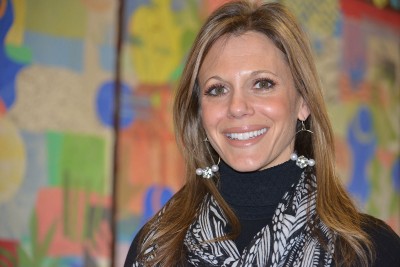
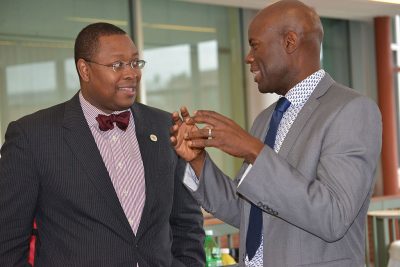
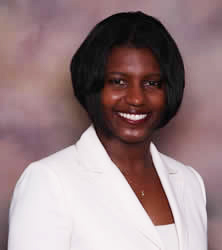
 Below are news and notes from our alumni, faculty, staff, and students. We are proud of all the amazing accomplishments by our Neag family. If you have an accolade to share, we want to hear from you! Please send any news items (and story ideas) to
Below are news and notes from our alumni, faculty, staff, and students. We are proud of all the amazing accomplishments by our Neag family. If you have an accolade to share, we want to hear from you! Please send any news items (and story ideas) to 